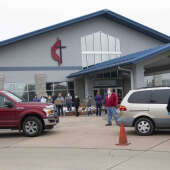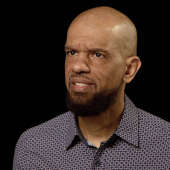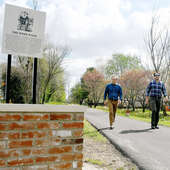Rearranging the World Currency
You can’t hold it in your hand. It’s not backed by anything except mutual trust — or distrust. It doesn’t involve a third party expert advising about it. And yet, people are making — and losing — fortunes from it.
Yep, we’re talking blockchain, cryptocurrencies, and Bitcoin.
Although released in 2009, the word “Bitcoin” has only in the past few months become a household term, thanks to its catapult from $1,000 at the beginning of 2017 to $14,500 by the end. A ledger system rather than an accounting system, it is a decentralized digital currency that uses blockchain technology to track transactions, negating the need for traditional banks. It is backed by the public, as well as the irreversible nature of blockchain’s record. And it is only one of more than 1,300 cryptocurrencies in existence that are changing the way consumers interact with banks, retailers and each other.
Critics cite Bitcoin’s volatility and anonymity that allows for money laundering and use for illicit activities as major pitfalls. Proponents reason that traditional currency, too, is used in illegal ways, and that the ability crypto provides to control one’s own money far outweighs the negatives.
“The ability for an individual to send representational wealth to anyone else in the world and have someone else anonymously — with no connection to them or against them — confirm that transfer of wealth, that’s world-changing,” says Andrew Bard, crypto entrepreneur and founder of MyCrypto Solutions LLC in Cape Girardeau.
Many traditional bankers and investors are reigning in their enthusiasm for the moment, however.
“Philosophically, these are the kind of things that we don’t want to be on the cutting edge of,” says Jim Limbaugh, executive vice president and community bank president for Montgomery Bank. “We don’t know enough about it yet and how it will compete with traditional currencies.”
Another Way to Do Business
Cape Cars Auto Group LLC of Cape Girardeau first began accepting cryptocurrencies in October 2017. They are one of 11 auto dealers in the country that deal in crypto and have accepted the currency in the sale of a total of eight vehicles since they first began offering the option four months ago.
Greg Vaughn, the marketing manager of Cape Cars Auto Group LLC, says that the Southeast Missouri dealership has been paid in crypto for cars by both millennials and people who are retired. The common thread? These consumers want to control their own money.
Vaughn sees accepting cryptocurrencies as the next logical step in the evolution of the way modern society does business. Just as many businesses were initially leery of accepting credit and debit cards in the latter half of the twentieth century, he says he believes cryptocurrency will become another normalized avenue with which customers can make purchases.
“If people would take the time to learn about it, it’s a no-brainer,” Vaughn says. “It gives your customers another way to do business with you.”
Crypto: Solution to Poverty, Highly Speculative…or
To Bard, cryptocurrency is an investment and more — it’s participation in a global movement with the potential to close the gap between the rich and the poor, an investment that could eventually eradicate poverty. He cites the currency’s current success of providing income and food to many Venezuelans battling inflation rates as just one example of crypto’s possibility and success.
“To me what I’m doing when I buy crypto, is I’m investing in the people of the world to do what I believe that they will, in general rise up and fix their systems,” he says. “Crypto is the tool they’re going to start using to do it. So to me, I view it as an investment because of that.”
Traditional banks and investment firms are taking a more conservative approach. A recent report on Bitcoin, cryptocurrencies, and blockchain by Edward Jones cited Bitcoin’s more than 1,300 percent rise in 2017 and its sharp decline at the beginning of 2018 as reason to warn against the “highly speculative” risk of cryptocurrencies. It noted that this rise has “far surpassed” the 1990s dot-com bubble and the 2000s U.S. housing market bubble.
Stan Irwin, Edward Jones financial advisor in Cape Girardeau, agrees.
“It’s so risky –we’re a conservative firm that helps people plan for their retirements and their children’s education. This is far from what we do,” he says. “We don’t feel that Bitcoin helps people achieve their financial goals. It could be here today and gone tomorrow — there’s nothing that really backs this currency up.”
Bard, too, admits that there are potential challenges to cryptocurrency systems. The first, he says, is overregulation. The other is an unregulated market that allows for manipulation, one in which people use credit to buy coins.
“If we’re not careful, this sort of unregulated, wild West leveraged [system] will end up putting us into a great depression,” he says. “That would significantly push us back.”
Blockchain: For More Than Currency
Perhaps the financial possibilities are not the most promising facet of cryptocurrencies, however. Perhaps, instead, it is the application of blockchain technology cryptocurrencies use that is most revolutionary. This technology has the potential to change the world — and it already is.
Blockchain is a record keeper that uses mathematical functions to track the specificities of transactions, such as the time they take place, who is a part of them and the amount or object being traded. It is secure and, once a “block” is created, cannot be removed. It is a technology, Cornell law professor Robert Hackett writes in the Fortune article “Why Big Business is Racing to Build Blockchains” that “rivals, in significance, the invention of double-entry bookkeeping.” And that happened in the 1400s.
Bitcoin harnesses blockchain to create new coins when miners discover solutions to the mathematical problems that release six blocks of new coins per hour. Its security, personal disinterest in transactions and availability to the public makes blockchain Bitcoin’s accountability system that renders a third party unnecessary.
But businesses are finding other applications for the technology.
Hackett’s Fortune article reported that a United Nations group, with the help of Microsoft and Accenture, is using blockchain to create identification documents for refugees.
Walmart can now track the shipping history of mangoes in a literal two seconds — rather than the six days and some odd hours it took before.
Businesses are using it to create more secure online transactions.
One man is even working on a start-up that combines blockchain technology with the “one red paperclip” trading fad: his business will allow a user to take their hat and, through crowd trading, turn it into a guitar.
Business leaders and organizations already working on these implementations of blockchain’s secure and accountable ledger system make it clear: the potential for this technology will only be limited by humans’ creativity.
The Future of Cryptocurrency
No matter where they fall on the spectrum of support, blockchain technology, and cryptocurrencies are movements Southeast Missouri business people are watching.
“We will just take a wait-and-see approach,” says Limbaugh. “We’re taking a look at it and will see how it continues to play out.”
Clear on where he stands, Bard, too, speculates about cryptocurrency’s future importance in the world economy.
He says, “Will it become almost nothing, or almost everything? That’s the question.”
Who’s Using Bitcoin?
A joint survey of 5,700 people, conducted by SurveyMonkey and Global Blockchain Business Council in January 2018, found that 58 percent of Bitcoin investors are between the ages of 18-34.
And, according to a survey conducted by the London Block Exchange reported in the Independent’s article “Bitcoin Latest: Third of Millenials Will Be Invested in the Cryptocurrency in 2018,” five percent of people aged below 35 are cryptocurrency investors, 11 percent plan to definitely invest during 2018 and another 17 percent are seriously considering investing in a digital currency by the end of this year.
Why does Bitcoin appeal especially to people of the millennial generation?
It’s decentralized and peer-to-peer — it takes the power from a central authority figure and places it in the hands of the people. Even the identity of the creator(s) is unknown, although he, she or they function under the pseudonym Satoshi Nakamoto.
It’s digital — technology has been a fact of life since Millenials were young children, and they’re using it.
It’s instant — available anytime, anywhere, transversing national boundaries and connecting the people of the world. Millenials dig that.

How are coins created?
Stay with us. People — called “miners” — who have special technology that solve complex mathematical equations, confirm the complete account history each time a transaction occurs and guess numbers that correctly fit into the equations to release new coins. When a solution is found — which when dealing in Bitcoin happens approximately six times per hour — a certain number of new coins are released for trade. Bitcoin is designed so that every four years, half of the amount of coins produced in the previous four years are released.
There will only ever be 21 million bitcoins released. Currently, over 16.8 million bitcoins have already been mined. Miners are compensated for the amount of work they put in with bitcoins.


































